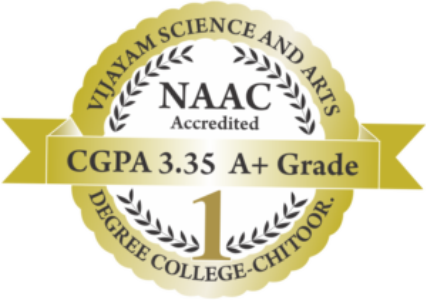College Code : 048
PROGRAM EDUCATIONAL OBJECTIVES (PEOs)
Bachelor of Science – Mathematics, Electronics, Computer Science (MECS)
PEO1: Apply knowledge and understand the principles of mathematics effectively as an individual and as a member or leader in diverse teams to manage projects in multidisciplinary environment.
PEO2: Analyse the skills to work comfortably with Electrical machines, Switchgears, power electronics and electrical systems.
PEO3: Understand the principles and development methodologies of Computer Systems and assess the hardware of Computer Systems and possess professional skills and knowledge of the software design processes.
Bachelor of Science – Mathematics, Physics, Computer Science (MPCS)
PEO1: Apply knowledge of Mathematics in all the fields of learning including higher research and extensions and provided with domain knowledge to get employed in IT industries and various organization.
PEO2: Understand core Physics concepts, principles, theories designed in proficiency in the analysis of complex physical problems with the use of mathematical or other appropriate techniques.
PEO3: Apply the skills and knowledge to excel in their professional career in Computer Applications and related discipline.
Bachelor of Science – Mathematics, Statistics, Computer Science (MSCS)
PEO1: Understand with solid foundation in Mathematics and Computer Science with fundamentals of Statistics programme and implementation with global competence and helps them for life-long learning.
PEO2: Apply broad knowledge of descriptive Mathematics and impart the basic analytical and technical skills to work effectively in the various fields of mathematics.
PEO3: Understand the subject-related and transferable skills that are relevant to some of the job traders and employment opportunities.
PROGRAM OUTCOMES (PO)
|
PO1. Domain knowledge: Apply the knowledge of mathematics, and science fundamentals, and a program specialization to the solution of complex problems. |
|
PO2. Problem analysis: Identify, formulate, review research literature, and analyze complex problems reaching substantiated conclusions using first principles of mathematics, and natural sciences. |
|
PO3. Design/development of solutions: Design solutions for complex problems and design system components or processes that meet the specified needs with appropriate consideration for the public health and safety, and the cultural, societal, and environmental considerations. |
|
PO4. Conduct investigations of complex problems: Use research-based knowledge and research methods including design of experiments, analysis and interpretation of data, and synthesis of the information to provide valid conclusions. |
|
PO5. Modern tool usage: Create, select, and apply appropriate techniques, resources, and modern IT tools including prediction and modeling to complex scientific activities with an understanding of the limitations. |
|
PO6. The Graduate and society: Apply reasoning informed by the contextual knowledge to assess societal, health, safety, legal and cultural issues and the consequent responsibilities relevant to the professional practice. |
|
PO7. Environment and sustainability: Understand the impact of the professional scientific solutions in societal and environmental contexts, and demonstrate the knowledge of, and need for sustainable development. |
|
PO8. Ethics: Apply ethical principles and commit to professional ethics and responsibilities and norms of the professional practice. |
|
PO9. Individual and team work: Function effectively as an individual, and as a member or leader in diverse teams, and in multidisciplinary settings. |
|
PO10. Communication: Communicate effectively on complex scientific activities with the scientific community and with society at large, such as, being able to comprehend and write effective reports and design documentation, make effective presentations, and give and receive clear instructions. |
|
PO11. Project management and finance: Demonstrate knowledge and understanding of the scientific and management principles and apply these to one’s own work, as a member and leader in a team, to manage projects and in multidisciplinary environments. |
|
PO12. Life-long learning: Recognize the need for, and have the preparation and ability to engage in independent and life-long learning in the broadest context of technological change |
Program Specific Outcomes (PSOs)
Bachelor of Science – Mathematics, Electronics, Computer Science (MECS)
PSO1: Understand the basic concepts of Mathematics and should be able to display knowledge of conventions such as notations, Mathematical terminology like Ring theory and Vector calculus, Laplace transforms.
PSO2: Understand the principles of electronic devices, network theory, Digital and Analog circuits, communication systems and develop the skills in design of embedded systems.
PSO3: Demonstrate mastery of computer science in core knowledge areas like fundamentals of computers and programming skills, data structures, databases, software engineering and development, web designing tools HTML, JavaScript, AJAX and PHP.
Bachelor of Science – Mathematics, Physics, Computer Science (MPCS)
PSO1: Understand the basic concepts of Mathematics and should be able to display knowledge of conventions such as notations, Mathematical terminology like Ring theory and Vector calculus, Laplace transforms.
PSO2: Acquire a job efficiently in diverse fields such as Science and Engineering, Education, Banking, public services, business etc.,
PSO3: Demonstrate mastery of computer science in core knowledge areas like fundamentals of computers and programming skills, data structures, databases, software engineering and development, web designing tools HTML, JavaScript, AJAX and PHP .
Bachelor of Science – Mathematics, Statistics, Computer Science (MSCS)
PSO1: Understand the basic concepts of Mathematics and should be able to display knowledge of conventions such as Notations, Mathematical terminology like Ring Theory and Vector calculus.
PSO2: Apply the concepts of Descriptive Statistics, Probability theory, statistical methods and inference, time series, design of experiment, operations research etc., in real life problems.
PSO3: Demonstrate mastery of computer science in core knowledge areas like fundamentals of computers and programming skills, data structures, databases, software engineering and development, web designing tools HTML, JavaScript, AJAX and PHP.

